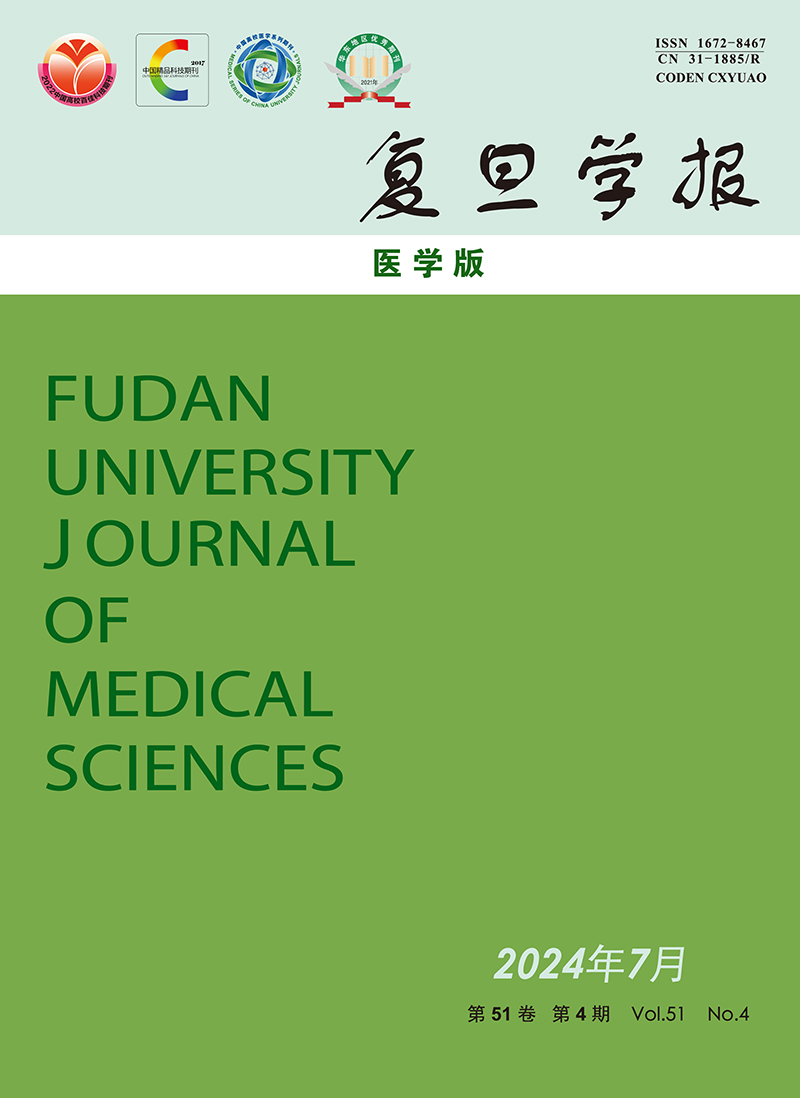Cognition of the relationship between smoking and COVID-19 and its impact on daily cigarette consumption among smokers
Q4 Medicine
引用次数: 2
Abstract
Objective: To explore the cognition of coronavirus disease 2019 (COVID-19) epidemic and its relationship with smoking during the COVID-19 epidemic and provide reference for smoking cessation intervention Methods: A cross-sectional study was conducted among Chinese smokers aged≥18 by an online questionnaire Demographic information, tabacco addiction, daily cigarette consumption during the epidemic, smoking behavior, cognition of COVID-19 epidemic, and other information were collected through Wenjuanxin platform during Mar 19 to Apr 2, 2020 Chi-square tests and multinomial logistic regressions were used for statistical analysis Results: Among 1 388 participants with an average age of 43 91±11 95 years old(ranging 18-75), 95 7% of then were males In all, 1 014 (73 0%) of the participants had not changed their smoking consumption during the epidemic, while 107 (7 7%) smoked more and 267 (19 2%) smoked less Factors contributing to the reduction in smoking included disagreed with the statement that "Smoking can prevent COVID-19" (OR=1 56, 95%CI: 1 13-2 15), disagreed with the statement that "Cigarette smoke is helpful in killing the virus of COVID-19" (OR=1 63, 95%CI: 1 17-2 26), and agreed that "Fine particles produced by smoking may increase the spread of virus" (OR=1 84, 95%CI: 1 32-2 57) Conclusion: It is necessary to clarify the misunderstanding related to smoking and improve the health literacy of smokers through media We should strengthen smoking cessation intervention focusing on respiratory health and the cognition of COVID-19 epidemic in smoking cessation clinics, smoking cessation hotline and other smoking cessation services © 2020, Editorial Department of Fudan University Journal of Medical Sciences All right reserved吸烟与新冠肺炎关系的认知及其对吸烟者日常吸烟量的影响
目的:探讨2019冠状病毒病(COVID-19)流行期间对疫情的认知及其与吸烟的关系,为戒烟干预提供参考。采用在线问卷对年龄≥18岁的中国吸烟者进行横断面研究,于2020年3月19日至4月2日通过“问卷新”平台收集人口统计信息、烟草成瘾情况、疫情期间每日卷烟消费量、吸烟行为、对新冠肺炎疫情的认知等信息,采用卡方检验和多项logistic回归进行统计分析。在1388名平均年龄为43 91±11 95岁(18-75岁)的参与者中,男性占95.7%。共有1014名参与者(73%)在疫情期间没有改变吸烟习惯,107名(7%)吸烟更多,267名(19.2%)吸烟更少,导致吸烟减少的因素包括不同意“吸烟可以预防COVID-19”的说法(OR=1 56, 95%CI:1 13-2 15),不同意“香烟烟雾有助于杀死COVID-19病毒”的说法(OR=1 63, 95%CI: 1 17-2 26),同意“吸烟产生的细颗粒可能会增加病毒的传播”(OR=1 84, 95%CI: 1 32-2 57)。在戒烟诊所、戒烟热线等戒烟服务中加强以呼吸健康为重点的戒烟干预和对新冠肺炎疫情的认知©2020,复旦大学医学学报编辑部版权所有
本文章由计算机程序翻译,如有差异,请以英文原文为准。
求助全文
约1分钟内获得全文
求助全文

 求助内容:
求助内容: 应助结果提醒方式:
应助结果提醒方式:


